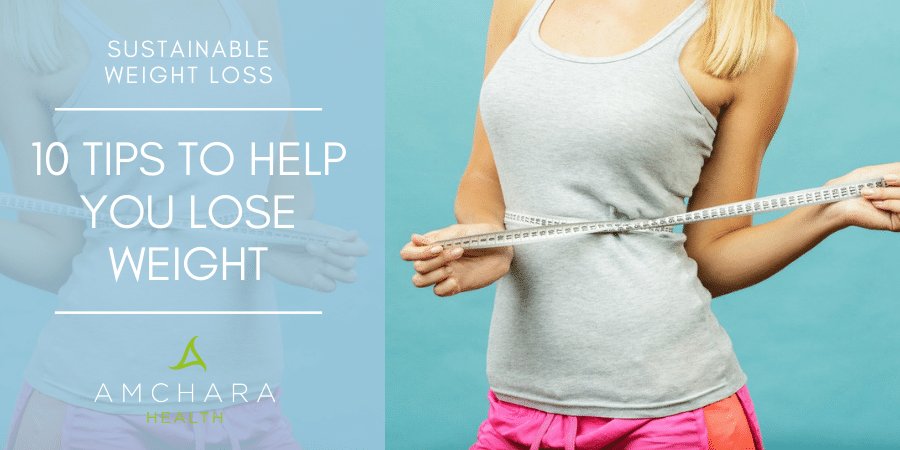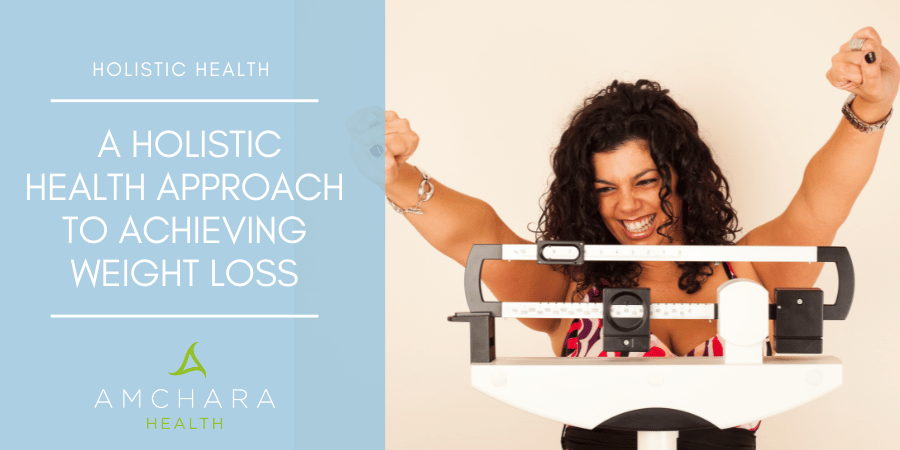Losing weight can be hard and keeping it off can be even harder.
With so many “fad” diets around it can be confusing to work out which is the best method of weight loss for you.
We always take an evidence-based approach and aim to provide you with actionable knowledge and tips to help you on your journey to optimal health.
Here we share our 10 top tips for healthy weight loss:
#1 Set goals
Set a slow and steady weekly weight loss goal – you may not be happy that it will take longer for you to lose the pounds, but a healthy, sustainable weight loss is around 1-2 lbs (500-900g) a week and you will be more likely to keep the weight off in the long term.
#2 Reward yourself to keep motivated
From the very start set achievable goals and aim for mini targets along the way to your main goal.
When you reach a mini target, treat yourself (although not with food).
This will help to keep you motivated to keep up the good work.
Having a list of reasons explaining why you want to reach your goal, how you may feel and how it will impact your life is a useful tool to revisit when you are finding things difficult and motivation to continue is low.
#3 Eat consciously and mindfully
Think consciously about how you eat – sit at a table, eat in a relaxed manner, do not slouch and ensure you chew food well.
Avoid eating at your desk, in the car, in front of the television or whilst you are on the go – it can be easy to overeat under these settings.
#4 Increase your protein
Eat protein with each meal – especially breakfast.
Protein slows the digestive process down and keeps you fuller for longer. (1)
The slower release of energy from food also supports blood sugar balance, reduces cravings and helps keep insulin at healthy levels. (2)
As insulin is a fat storing hormone, keeping levels balanced is beneficial.
Good proteins include eggs, white fish, oily fish, organic grass-fed poultry, lentils, beans, quinoa, tofu and tempeh.
Protein powders such as brown rice, pea and hemp can be useful for making a balanced breakfast smoothie.
#5 Watch your carbohydrate intake
These have the biggest impact on blood sugar and insulin and are linked to insulin resistance and weight gain.
Insulin resistance is a state whereby the body cells are “deaf” to the actions of insulin and blood sugar remains high.
Ditch the white, refined goods, processed foods and sugar. If you are going to eat carbohydrates choose wisely and opt for whole grain, fibre dense alternatives.
#6 Eat more vegetables
Make half your plate vegetables – rich in fibre and potent vitamins, minerals and plant chemicals, vegetables help to keep you fuller for longer and are low in calories.
Aim for 8-10 portions a day, with more vegetables than fruit.
Ensure you are eating a wide variety of different colours to gain optimum health benefits.
A rainbow food chart can be useful for tracking your daily intake.
#7 Look after your gut
Support your gut bacteria – the beneficial organisms that naturally live in the gut have been shown to be important for keeping a healthy body weight.
Disruption to the balance of gut microorganisms is seen frequently in people who are overweight or obese. (3)
Feed your gut bacteria with particular fibres in your diet known as prebiotics.
These can be found in oats, Jerusalem artichokes, onions, leeks, garlic, bananas, chicory and asparagus.
Fermented probiotic foods like kefir, kimchi, sauerkraut, kombucha and tempeh are all rich in beneficial bacteria and further aid gut balance and health.
#8 Drink plenty of water
Stay hydrated – it sounds simple but being mildly dehydrated may be mistaken for hunger and lead to unnecessary eating.
Aim to drink at least 2 litres of water a day and invest in a BPA free water bottle so you always have water to hand wherever you go.
Sip on water throughout the day and avoid drinking with meals as this dilutes digestive juices.
#9 Consider fasting
Intermittent fasting – when you eat may be as important as what you eat, and research shows that intermittent fasting can help with weight loss (4).
There are many methods of intermittent fasting and these range from all day water fasts through to restricted eating on two days a week, or eating within a certain time from during the day, such as the 16:8 eating plan.
Which method is best for you will depend on your circumstances and advice from a qualified health professional can help to guide you.
#10 Stay active
Be active – there is no getting around it, a sedentary lifestyle predisposes us to weight gain and a long list of health conditions.
Do cardiovascular exercise 3 times a week for at least 30 minutes and add in 2 sessions of resistance training with weights or resistance bands.
You don’t need to join a gym – many exercises can be done at home.
Take the opportunity whenever you can to be active – take the stairs, walk home instead of getting the bus, or get off a stop or two earlier, or try doing star jumps whilst waiting for the kettle to boil!
This doesn’t need to be the end of the article!
With your comments, we’d love to continue the conversation.
Let us know your top tips for healthy weight loss.
READ THIS NEXT:




